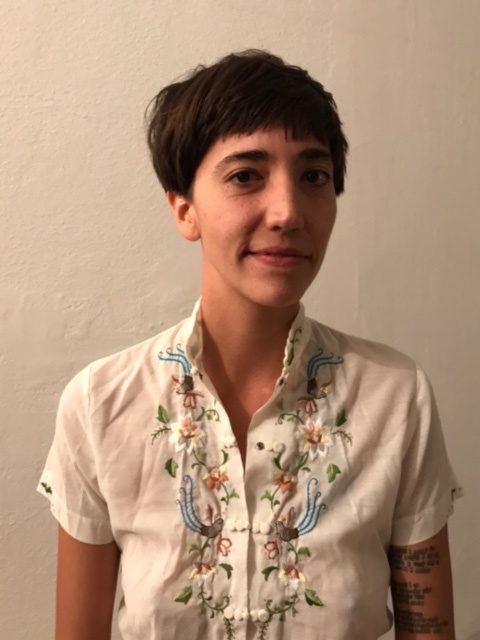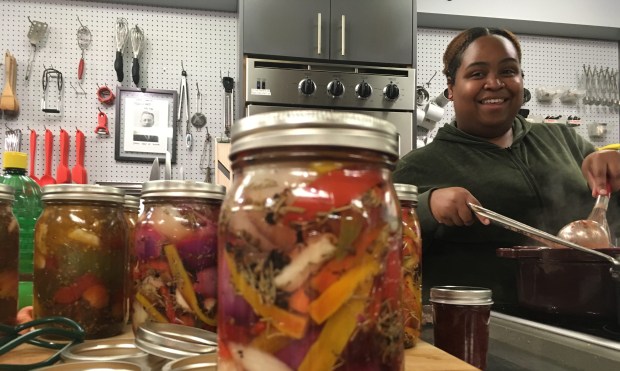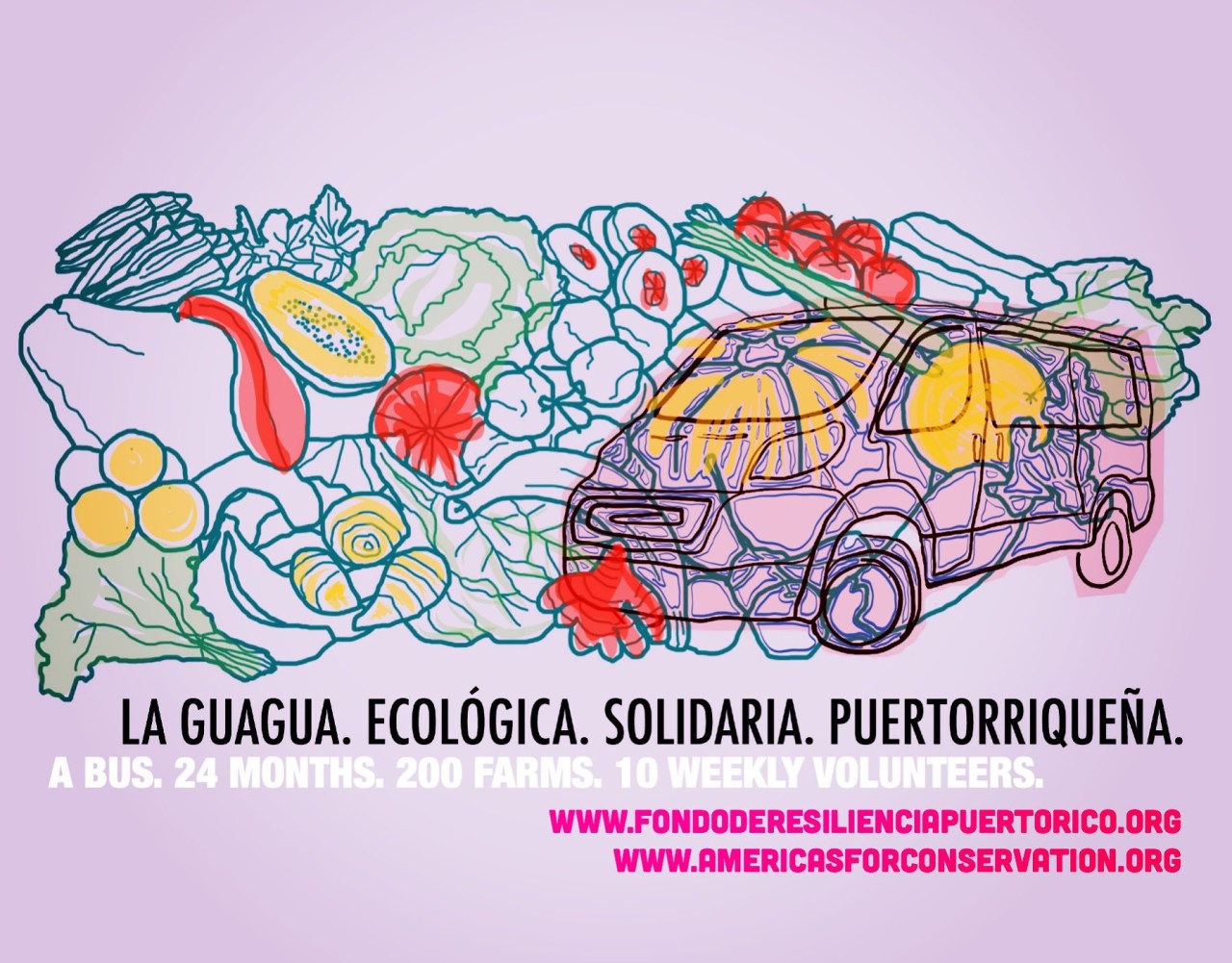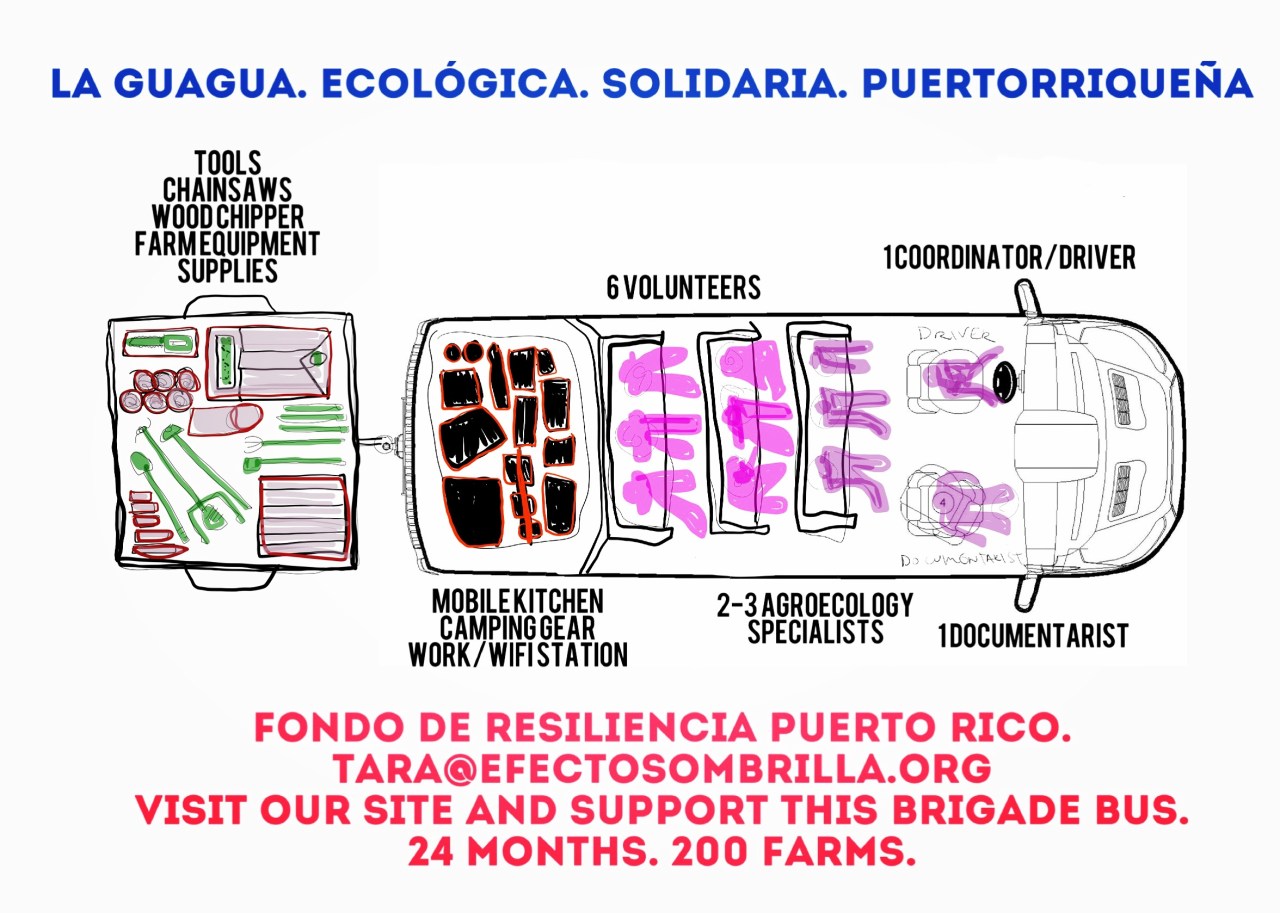
Tara Rodriguez Besosa is the founder of El Departamento de la Comida, a project based in San Juan that works to support local, sustainable agriculture. Originally a multi-farmer CSA at its inception in 2010, El Departamento evolved into a cafe working exclusively with locally-grown produce. It was flooded during Hurricane Maria. Rodriguez Besosa has since focused all of her efforts on rebuilding and offering support to the sustainable agriculture community in Puerto Rico. Explore Parts Unknown editor Kaylee Hammonds spoke with her via telephone.
This interview has been edited and condensed.
Explore Parts Unknown: How has the hurricane affected you?
Tara Rodriguez Besosa: We don’t have the restaurant anymore. I would feel it ridiculous to have my restaurant if all of my suppliers—because I only use local organic, local sustainable suppliers—are in super emergency mode right now. They lost their houses. They are my friends, they are my family—my sister is an organic farmer as well.
I was actually stuck in New York City on my way back to Puerto Rico when the hurricane hit. I was there for a week and a half and completely desperate, not being able to be home. So I started just making a whole bunch of phone calls and getting to work. I’ve been working with this organization in Denver called Americas For Conservation + the Arts for about a year now. The director, Irene Vilar—she is the granddaughter of Puerto Rican nationalist figure Lolita Lebrón—started the Resiliency Fund with the aim of aiding decolonization, reforestation, and healthy food promotion in Puerto Rico. I said, “Well, yeah, this is great,” I said, “I want to dedicate everything that we do now for farming, sustainable farming efforts on the island.” The fund drive has been extended from 24 weeks to 24 months, following the hurricane.

What was your first consideration when you started to get down to work after the storm?
I was worried that every day that passes that we don’t help our farmers is another day that we depend on this relief aid, outside aid. It takes us eight to 10 weeks to get kale again and that’s after we start putting it in the ground. Before that, we need to clear roads to the farms, we need to communicate with farmers, we need to make sure they have a roof over their heads, we need to get seeds back.
Seeds and seed donations is one of the things that we sought instead of fundraising and then using the money to buy seeds; I thought it would be a beautiful way to support and build community. Most of our seed donations have actually been coming from other farmers. I do the collection of the seeds. I’ve been getting jars of stuff. People are using their connections. Literally, the best way to get stuff over has been using people as mules and their two suitcases. “Okay, this person is going to Puerto Rico… Oh, here, here’s the suitcase. Fill this up with seeds. Go for it.” And also on private planes. It’s all community-supported efforts. We’re coordinating to get community farms in the San Juan area to become seed germination stations.
In terms of immediate relief—all the shitty food that’s coming into the island, that you have to wait four hours in line for—I just was also like, “How else can we get good food that’s actually healthy, that’s actually not factory-farmed food?” Because I just felt ridiculous if my farmers who just got everything taken away from them in front of their eyes would have to just eat canned food.
How is El Departamento able to assist with this?
We created a system where the New York City farmer’s markets from GrowNYC—the different farmers and the markets—donate leftover produce. Someone from the Queer Kitchen Brigade works at GrowNYC. It ended up becoming this system where farmers are very happily donating produce. Then that gets picked up and transported to places that are allowing for their commercial kitchen space to be used. The Queer Kitchen Brigade is doing weekly canning events; it’s a farmer-to-farmer effort … Farmers donate the seeds, they’re donating the produce. Then these groups of volunteers are just canning and preserving; that has been really amazing.

Can you talk a little bit more about your work with the Resiliency Fund?
The Resiliency Fund is a general fund—I want this to be an umbrella fund, where we’re working with different groups on the island. Different grassroots organizations and sustainable farms are all meeting. We’re meeting once a week, some are meeting once a day, [but] we’re all talking together. [Together], we’ve been coming up with short-term relief—like, for example, all the seeds that get donated to us, they get distributed through different farming projects. [And] we’ve been collecting money for tools.
I’m working on a project now where we’re trying to fundraise for getting a 10-passenger bus. It’s basically a tour bus, but fully equipped with your typical daily use tools as well as more expensive equipment that maybe these farms don’t use on a daily basis, like a $10,000 wood chipper, stuff like that. Our efforts are going towards supporting the different groups of people that are organizing work brigades of volunteers on farms.
The idea is that the van comes hitched with a little pod in the back that holds a whole bunch of tools, and that it comes with volunteers. We’re really trying to create a tool, which is this vehicle, that can go and participate in brigades, and not only transport the volunteers but bring specialists and have them be paid for it.
So we’re asking for the equipment for that. There’s a coordinator, and this comes with a calendar that not only organizes the farms on one end, and what their necessities are, but also organizes the people that want to get on the bus in the next 24 months while this Resiliency Fund drive lasts.
Food First, from Berkeley, California, has been working with sustainability efforts in Puerto Rico before. I put them in touch with Americas For Conservation + The Arts (the sponsor of the Resiliency Fund). A person from each organization is helping to create an online calendar, where they organize farming information.
Part of organizing is to figure out how can we, on the back end, communicate and work together? Because if we decide that we can actually organize our efforts in a much more effective way, because at the end of the day, the goal is to be able to have a cohesive national sustainable agriculture plan that we will be presenting to the government.

You’ve been fighting for sustainable agriculture in Puerto Rico since before the hurricane. Can you talk a bit about why?
Nicholas Kristof wrote about this, and I mention it a lot—there’s no Secretary of Food. We have the Food and Drug Administration, we have the Department of Agriculture … even more so for Puerto Rico, where we have triple the amount of departments, government departments than even the States. It’s this really weird thing where in Puerto Rico there’s a department for everything, but there’s no real work getting done. It’s like a weird, bureaucratic science fiction movie.
The hurricane came, but before that, we were just as bad. I was literally the only restaurant on the whole island which only used local, sustainable produce, and I had a small restaurant. That shows that there really hasn’t been that much support. It’s a small but really strong movement, and very impactful, but really difficult. I’m not going to support local chemical agriculture, because I live on an island. Everybody lives downstream; the chemicals end up on the beach. I’m very adamant about it. It needs to be all local and sustainable. It can’t just be one or the other.